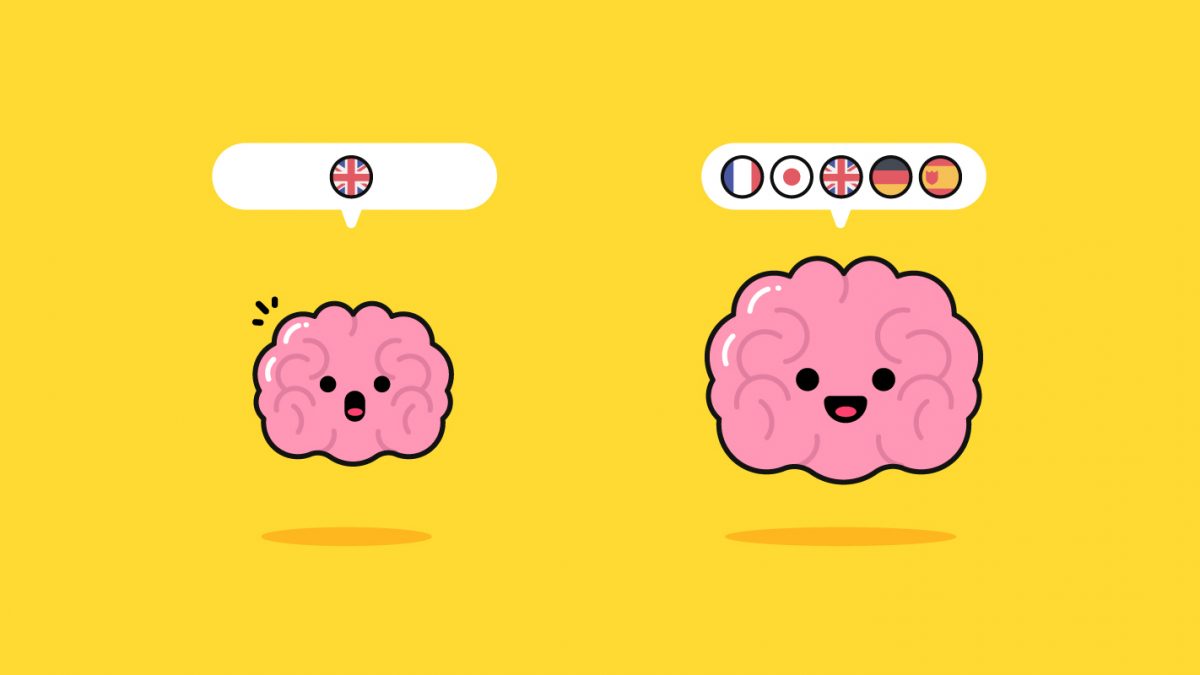Learning Languages Boosts Brain Power
Learning a second language as an adult is a daunting task, and the goals we set ourselves often feel unreachable. We picture ourselves being able to converse freely in French with that Parisian waiter, but we often end up slacking off on the hard work and when we eventually make it to Paris we only manage to jumble our words and lose face. Perhaps if we thought that learning a second language was good for our health (as well as our egos), we might finally have the motivation to go all the way.
Well, you and your French waiter are in luck. New research in bilingualism might provide some extra motivation: it appears that being bilingual may slow down the ageing of the brain and the onset of Alzheimer’s disease.
Daily workouts for the brain?
An area of the brain known as the executive control system is the lead character in this story. How do bilingual people manage to avoid mixing up one language with the other? This is the proud work of the executive control function, helping bilinguals to switch from, say, Japanese to Russian, and back again. Its job is to keep you focused on what is relevant while ignoring distractions.
Anything that requires you to shift focus from one kind of task to another is like circuit training for the executive control system making it more effective at its job. When you know and use two languages regularly and interchangeably, your brain must search and select in not one but two massive libraries of words. This process is happening behind the scene in every bilingual mind, resulting in, unbeknownst to them, a mind that is fitter and more resilient to ageing.
More benefits of exercising the brain
Our actions and behavior have a physiological effect on the brain. An example of this is the case of London taxi drivers. London cabbies must memorize routes and shortcuts across a city with over 25,000 spaghetti-like streets in order to pass an exam known as ‘The Knowledge’. Researchers discovered that this feat resulted in the development of the part of the brain responsible for spatial memory and navigation. Even later in life, the brain is ready to take on new challenges and is able to physically change in order to do so. The same applies to the benefits of learning a new language; even if cradle bilinguals benefit the most, it is never too late to begin to reap some of the rewards, just like when it comes to exercising your body.
Another benefit of having a bilingual brain can be observed in patients with Alzheimer’s disease. In a study of Alzheimer’s sufferers, a curious fact emerged: the bilinguals in the group had far more brain damage than the monolingual patients who presented the same degree of symptoms. What this means is that the bilinguals were able to deal with brain damage more effectively by circumnavigating the damaged parts of the brain. This does not suggest that bilinguals are immune to the disease but it does show that when they get it, they are better able to deal with it, and on average show symptoms 4-5 years later than monolinguals.

Bilingualism and multilingualism were once seen in a negative light, and parents were not encouraged to teach children a second language (including the parents of this writer). Work in the fields of neuroscience and psychology has helped to show that the opposite is true: there are a plethora of physical, social and cultural benefits to speaking two or more languages.
There are plenty of reasons for learning a second language, but the best one is probably the one we already knew: learning a new language is a fun and challenging experience that can profoundly change your life and your view of the world.
Want to learn more?
If you’re feeling inspired, sign up below for a free two-week trial and a Live Lesson with a private qualified tutor to start speaking a new language for real! Our classes are structured around exercises created by language teachers, so there’ll be no awkward silences – we promise! 😉
And don’t forget to check out our Facebook, Twitter and Instagram pages for more language content!



